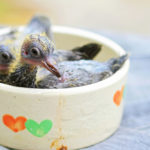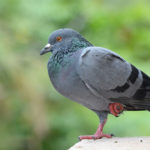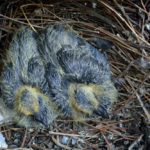Finding an abandoned pigeon egg in a nest is very common, especially if you live in an apartment complex with a balcony or they can also be found on building ledges or nooks and crannies in chimneys or gutters.
Pigeons will abandon an egg in the nest due to being threatened by another animal or even a human, sometimes they’ll return to the nest but in other cases, they may abandon the egg completely to protect themselves.
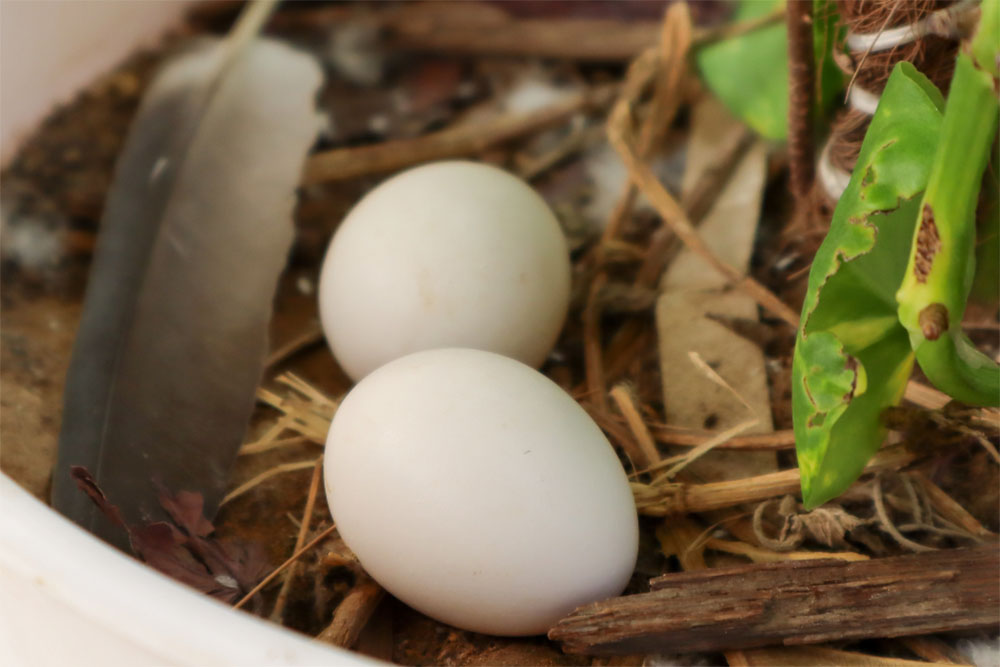
If you’ve found an abandoned pigeon egg then his article will guide you on how to care for it, should you choose to do so, and also how to check if the chick is alive inside the egg.
What To Do If You Find A Pigeon Egg
There are two options you can take if you find an abandoned pigeon egg, one is to call a wildlife center or authority to come to pick it up so they can take care of it where they’ll eventually re-home it or release it.
The second is to take care of it yourself in your home until it has hatched into a baby pigeon, which you’ll then need to take care of until it can fly ‘the nest’ or then call a wildlife authority to take care of it.
How Do I Know If There Is A Pigeon Chick Inside The Egg?
However, you may not be aware of how long the pigeon egg has been left unattended and you’ll need to check if there is a live chick inside the egg. You can do this in two ways.
Listening To The Egg
Tap the egg gently with your finger and listen to see if there is a noise in response to your tapping.
If there is a live chick inside then you may see some movement from the egg or even hear noises coming from it.
Candling
The other way you can see if there is a live chick inside the egg is through candling which will need to be done in a dark room.
Place the egg in the dark room and shine a light (torch/phone light) on the bottom of the egg.
If you see veins and a darker patch towards the middle of the egg then this means that the egg is fertilized and a live chick will be inside.
If there are no veins then this means the egg is unfertilized.
Unfortunately, if an egg has not been incubated then it will die inside the egg and you’ll be able to see this through a clear space at the base of the egg and the shadow outline of the chick will be patchy.
You should try both processes to confirm whether there is a live chick inside before taking any other action.
How To Care For A Pigeon Egg: An Easy Guide
Bird eggs need a warm place for them to grow and eventually hatch and you’ll need to imitate the warmth of the mother sitting on the egg by placing it in a warm place (preferably safe).
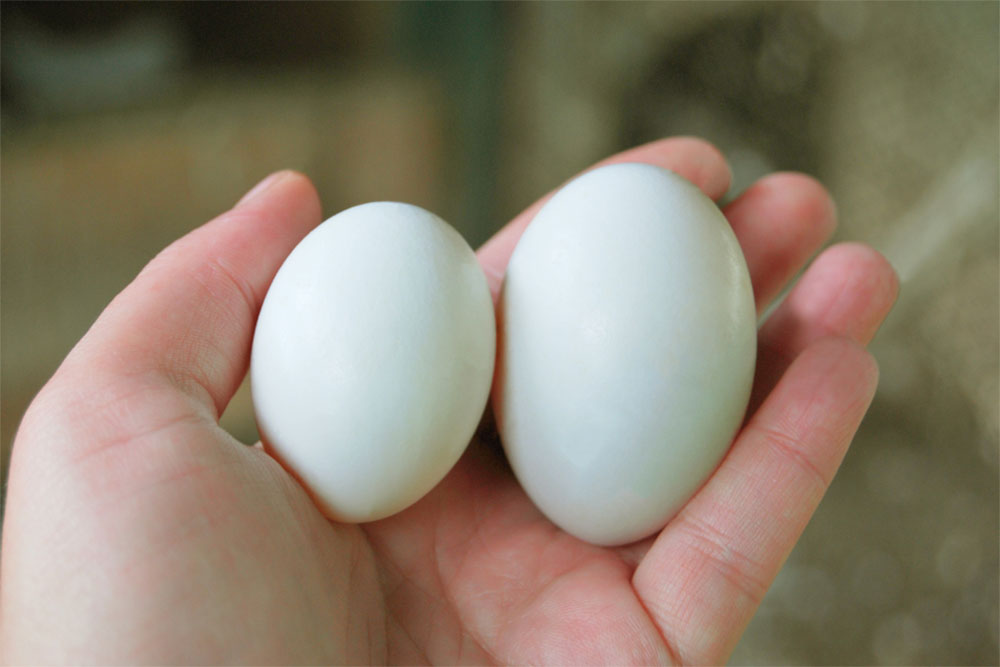
This could be a simple cardboard box with shredded tissue and a heat lamp placed over it, or you can choose to buy an egg incubator to keep the temperature accurate.
Regardless of if you’re using a heat lamp or an incubator, you’ll need to keep the temperature between 98.6 degrees F to 100.4 degrees F as this is the optimum incubation temperature.
An egg incubator will need to have its humidity levels set to around 55%.
Pigeon eggs only take 18 days to hatch so keep a watchful eye every 12 hours to see if they’ve hatched as you may be unsure of when the egg was laid by the mother.
Once your pigeon has hatched, you’ll need to decide whether you’re going to take care of it yourself until it’s ready to fly the nest or choose to contact wildlife authorities (recommended if you haven’t got the time to care for a bird).
Is It Safe To Handle A Pigeon Egg?
Yes, it is considered safe to touch and handle a pigeon egg as long as your hands are clean and you’re gentle when moving it to a safe location.
Pigeons don’t have a good sense of smell so if the mother does return then they won’t be able to smell you on it and won’t abandon the egg again.
If you touch the egg with unwashed hands, then try to gently wipe it with warm water and a soft microfiber cloth to remove any bacteria from the surface to prevent damage to the growing chick inside.
How Soon Should I Incubate A Pigeon Egg?
Pigeon eggs can typically last up to 5 days without incubation which is ideal as some parents will need to leave the rest to fetch food or if they’re threatened by prey and give them time to return to continue looking after the egg.
However, in warmer climates, the egg may be able to last long without incubation whereas colder climates may only allow the egg to last for a few hours before it dies.
So if you find an egg outside in the cold, you should carry out the two tests (tapping and candling) to see if the egg has survived and if it has, then incubate it straight away.

